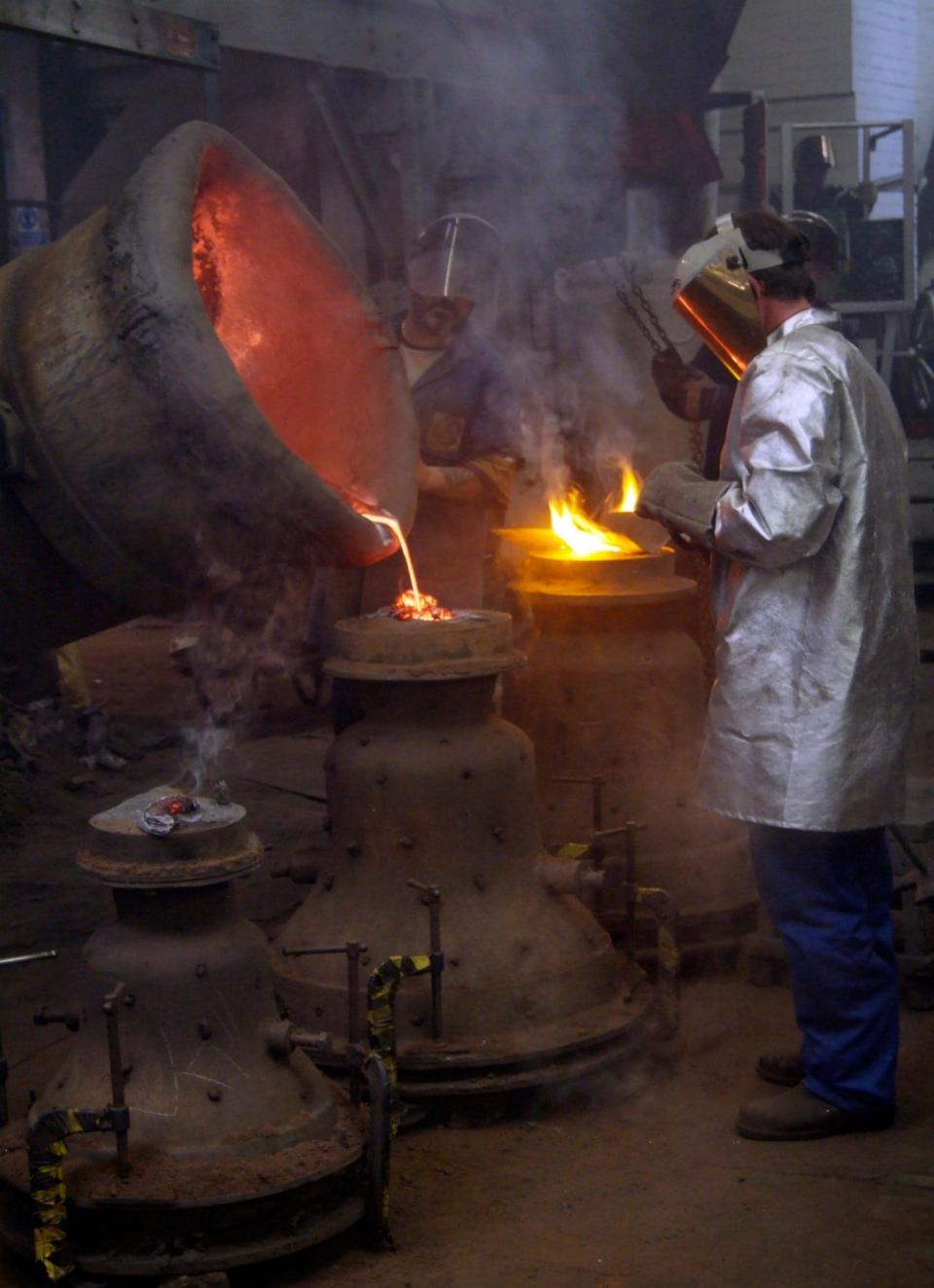Letters: European vaccine ‘precautions’ are based on a shaky grasp of risk

SIR – Several European countries have stopped using the AstraZeneca Covid vaccine “as a precaution” because of fears it may cause blood clots.
At best this seems a curious choice of words, and at worst a failure to understand risk management.
Pausing vaccinations carries its own risks because many millions of people will remain unprotected against Covid for longer. Many others in Europe and beyond may also be deterred from receiving the jab, even when inoculations resume.
Suspending the rollout can be justified as a precautionary measure only if European leaders know already that the risks from adverse reactions to the jab outweigh the risks of halting the programme.
Paul Bennington
Guildford, Surrey
SIR – Consider a population in which Covid is currently killing 1,000 people per day. Accept the hypothesis that completing the vaccination programme will end the pandemic. It follows that delaying the programme by one day will prolong the pandemic by one day, and will therefore cause 1,000 avoidable deaths.
European leaders are not using a “precautionary’” principle at all. In fact, they are seeking to manage blame. If you die from Covid, you blame the virus. Die following a vaccination, and you blame whoever gave you the vaccine.
For those yet to be inoculated, it is important to remember that we are comparing a handful of deaths from blood clots, which may have nothing to do with the vaccine, with thousands of daily deaths from Covid. The logical choice is obvious. Have the vaccine.
The only other explanation for Europe’s failure of logic is that it’s driven by the politics of Brexit. Call me naive, but I hope it’s statistical ignorance rather than malice.
Professor Peter Furness
Whissendine, Rutland
SIR – The temporary suspension of the AstraZeneca vaccine by several European countries is manna from heaven for the anti-vaxxers who already have a significant presence in France and elsewhere.
As a result of the EU’s continued briefing against a vaccine to hide its own appalling inertia, even more European citizens will succumb to Covid and perhaps die.
Bill Todd
Twickenham, Middlesex
SIR – If the EU no longer wants to use the AstraZeneca vaccine, could it please send doses to Covid-19 Vaccines Global Access (Covax), which I am sure would be most happy to use them?
This is a political decision, taken to cover up a disastrous vaccination programme, and has nothing to do with safety, as the World Health Organisation, European Medicines Agency and the Medicines and Healthcare products Regulatory Agency have all said the vaccine is safe.
Dr Martin Keech
Guildford, Surrey
Police priorities
SIR – Monday’s Telegraph carried this quotation from a Scotland Yard spokesman: “Members of the public can report allegations of any kind of harassment to local police online or on 101 – the information will be assessed and all evidence investigated thoroughly.”
I live in the Thames Valley Police area. Three times in the past two years I have called 101 with a non-emergency concern (a dangerous dog, for example) and on each occasion, after waiting 15 minutes, I have reverted to 999 and then been rudely admonished for using the emergency number.
Would a police spokesman like to clarify what members of the public should really do?
V T Evenson
Didcot, Oxfordshire
SIR – The police would be in a much better position to protect women (and everyone else) had Theresa May not foolishly agreed to Treasury demands in 2010 to reduce funding for police by 18 per cent, resulting in the loss of more than 20,000 mainly experienced officers.
John Preston
Scunthorpe, Lincolnshire
SIR – Undoubtedly it will affect the recruitment of police officers if potential recruits are aware that they will be vilified for carrying out their duty of upholding the law.
Pauline Edwards
Harrow, Middlesex
SIR – I wonder how Sarah Everard’s parents feel about their daughter’s tragic murder being hijacked and politicised by the likes of Reclaim These Streets.
As the mother of three young sons, I am disgusted by the way men are being demonised in the media, portrayed as manipulative sex pests, rapists and now murderers. Let’s learn to treat each other with respect.
Lorna Robertson
Whyteleafe, Surrey
Lockdowns don’t work
SIR – The suggestion that “it’s unarguable that we should have gone into lockdown earlier” is simply wrong.
The weight of academic evidence is that lockdowns have little independent impact on hospitalisations and deaths. In contrast, voluntary changes to behaviour seem to be a significant factor in slowing and eventually reversing surges in infections.
Given the lag between infection and death, the fact that Covid-related deaths peaked in England on April 8 last year suggests that infections had begun to drop well before the national lockdown on March 23. More recently, every indicator confirms that infections were falling in England well before the third national lockdown in January.
What is certain, however, is that compulsory lockdown restrictions have carried unimaginable economic and social costs to society – to say nothing of their devastating impact on freedom, basic rights and respect for the law.
Professor David Paton
Chair of Industrial Economics, Nottingham University Business School
Dr Clare Craig
Dr Harrie Bunker-Smith
Mark Boulle
Dr Eizabeth Evans
UK Medical Freedom Alliance
Dr Keith Johnson
Dr Ros Jones
Dr Tanya Klymenko
Senior lecturer, biomedical sciences, Sheffield Hallam University
Frank Lally
Oliver Stokes
Professor Ellen Townsend
Professor of Psychology, Nottingham University
Dr Mike Yeadon
Garden loofahs
SIR – My wife grew loofahs (Letters, March 16) in the open air in our front garden last year. One can’t get much greener than that.
We now use them as pan scrubbers.
Alexander Simpson
Market Drayton, Shropshire
Meteor rights
SIR – Nigel McKie (Letters, March 12) asks about ownership of meteorites.
To my knowledge there is no specific case law, but in England the meteorite would belong to the owner of the land it was found on. The Crown’s claim to treasure probably wouldn’t hold sway, as it is predicated on the original owner being unknown. This might be a plausible argument in certain circumstances – but, as the provenance of the Winchcombe Meteorite is clear, that isn’t so here.
Under international law, while the Outer Space Treaty of 1967 does not mention anything about material that falls to Earth naturally, the Moon Agreement of 1979 does specifically exempt such extraterrestrial material from its provisions. The UK is not party to that agreement but, in any case, the non-appropriation principle would not apply, and the existence of a robust market in meteorites is ample precedent for that. It is also a reason to be grateful to the Wilcock family for donating their meteorite to science.
As for the value of the rocks, meteorite iron does have a long history as a “prestige item” for the manufacture of jewellery and swords, so Crown interest might not be as recent as one would suppose.
Thomas Cheney
Northampton
Carpet classification
SIR – As civilians working with the British Army, my wife and I were provided with housing (Letters, March 16) for our two-year tour of duty in Germany.
When we moved in, the housing officer apologised that accommodation befitting a lieutenant-colonel (my equivalent rank) was not available, and we were housed in more modest but perfectly adequate major’s quarters.
Months later, a team arrived to replace the carpets, even though these were in good condition. The fitters explained that, in a major’s quarters, the carpets are smaller than the floor area of each room, leaving two feet of exposed floor all round. They proudly replaced them with fully fitted carpets appropriate for a lieutenant-colonel.
Derek Hall
Tydd St Mary, Lincolnshire
SIR – On moving into married quarters in 1971, we were delighted to find we had a telephone.
Unfortunately, the previous occupier had been of a rank senior to my husband – so this was swiftly removed.
Kate Forrester
Malvern, Worcestershire
Ringing the changes at Whitechapel’s foundry

SIR – I signed the UK Master Founders’ letter urging Robert Jenrick, the Housing Secretary, not to overturn plans for Whitechapel Bell Foundry (report, March 7).
The AB Fine Art Foundry works with many famous artists, from the Chapman Brothers to Gavin Turk. Based in east London, we look forward to running the new foundry along with the Westley Group. We will continue to cast works of art, including Whitechapel bells, at this famous site and open the building to the public after a £6 million restoration. It will also be open for educational purposes, with a café and shop, creating nearly 200 jobs.
It is a shame this project was held up by false claims that the foundry was being replaced by a hotel. Over 1,000 letters of support have been sent to Mr Jenrick. The restoration is supported by Historic England. It is time to dispel the myth that a new foundry could succeed just making bells; this restoration will give the building renewed purpose and secure it for future generations.
Jerry Hughes
Director, AB Fine Art Foundry
London E14
A senior Baby Belling that's still going strong
SIR – Every day my wife and I use a Baby Belling electric cooker that was bought by my mother in either 1947 or 1948 (Letters, March 15).
Only one replacement part has been required since then: changing the round-pin plug to a three-pin one.
Alan Millington
Wallingford, Oxfordshire
SIR – I have, and still use every day, a Parkinson Renown Six gas cooker, which I bought second-hand in the mid-Sixties. It was made in about 1959 and a similar one is a Science Museum exhibit. Apart from the burners – changed during the move from town to natural gas – the rest is original.
John Bentley
Colchester, Essex
SIR – In 1962, with my first child benefit payment on the birth of my first son, I bought a Philips hand-held electric whisk, type HR 1190/B. He and it are both going strong at the age of 58.
Frances Presley
Dorking, Surrey
Letters to the Editor
We accept letters by post, fax and email only. Please include name, address, work and home telephone numbers.
ADDRESS: 111 Buckingham Palace Road, London, SW1W 0DT
FAX: 020 7931 2878
EMAIL: dtletters@telegraph.co.uk
FOLLOW: Telegraph Letters on Twitter @LettersDesk

